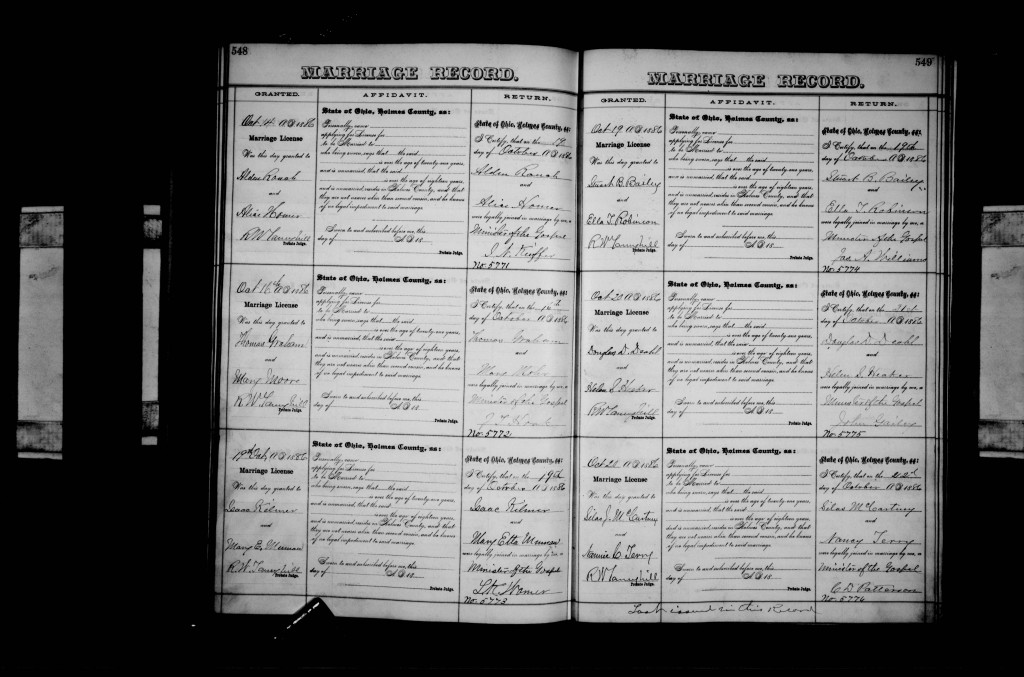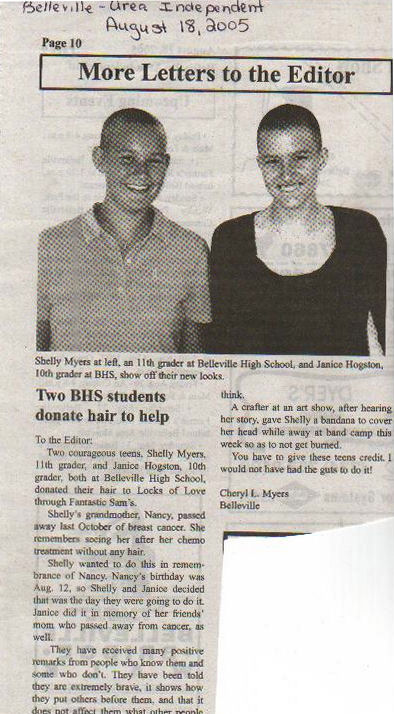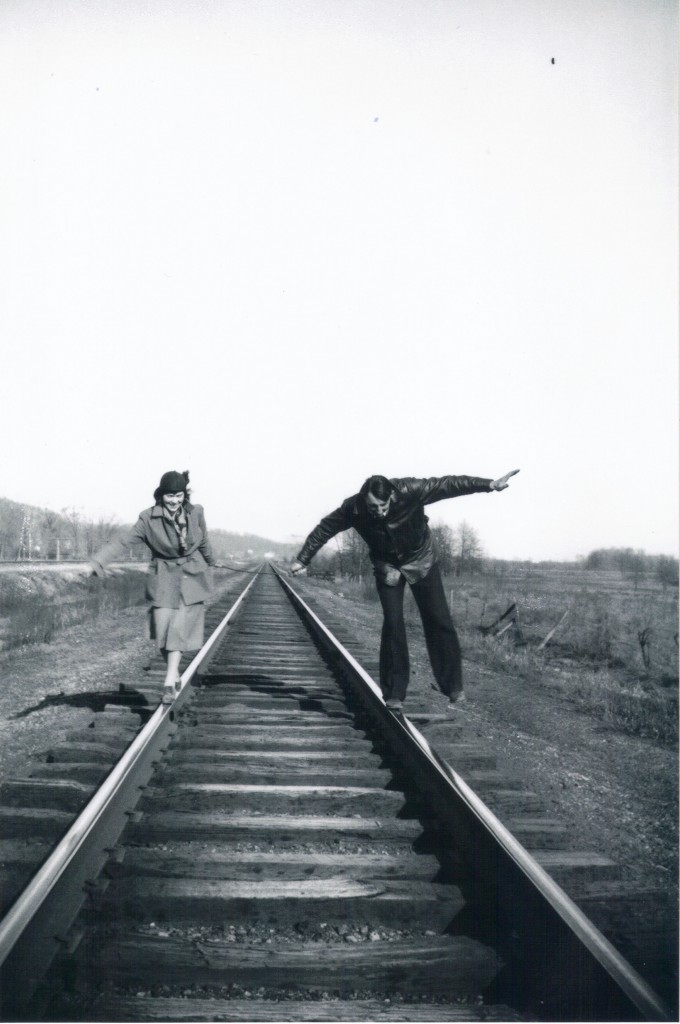I found this Meme at Geniaus, who got it from Pauleen at Family history across the seas blog. Jump in and have some fun 😀 I am not sure if I will have many of these bolded. Most of my research has been on the internet.
Things you have already done or found: bold face type
Things you would like to do or find: italicize (colour optional)
Things you haven’t done or found and don’t care to: plain type
You are encouraged to add extra comments in brackets after each item[]
- Looked at microfiche for BDM indexes which go beyond the online search dates.
- Talked to elderly relatives about your family history.[ lot more questions I should have asked of a lot more people, but I thought I had time]
- Obtained old family photos from relatives.
- Have at least one certificate (birth/death/marr) for each great-grandparent.
- Have at least one certificate (birth/death/marr) for each great-great-grandparent.
- Seen/held a baptism or marriage document in a church, church archive or microfilm.
- Seen your ancestor’s name in some other form of church record eg kirk session, communion rolls.
- Used any microfilm from an LDS family history centre for your research.
- Researched using a microfilm other than a parish register
- Used cemetery burial records to learn more about your relative’s burial. [WWI burial]
- Used funeral director’s registers to learn more about your relative’s burial
- Visited all your great-grandparents’ grave sites.
- Visited all your great-great-grandparents’ grave sites.
- Recorded the details on your ancestors’ gravestones and photographed them.
- Obtained a great-grandparent’s will/probate documents.[not actually a will, but Common pleas court, selling of land for debts and dowager rights this was actually 3rd and 4th great-grandparents]
- Obtained a great-great grandparent’s will/probate documents
- Found a death certificate among will documents.
- Followed up in the official records, something found on the internet.
- Obtained a copy of your immigrant ancestors’ original shipping records.
- Found an immigration nomination record for your immigrant ancestor
- Found old images of your ancestor’s place of origin (online or other).[pictures taken by a cousin who actually visited Scotland]
- Read all/part of a local history for your ancestor’s place of residence.
- Read all/part of a local history for your ancestor’s place of origin.
- Read your ancestor’s school admission records.
- Researched the school history for your grandparents.
- Read a court case involving an ancestor [see # 15]
- Read about an ancestor’s divorce case in the archives.
- Have seen an ancestor’s war medals.[ have great uncles dog tags]
- Have an ancestor’s military record
- Read a war diary or equivalent for an ancestor’s battle.
- Seen an ancestor’s/relative’s war grave.[ have a photo]
- Read all/part of the history of an ancestor’s military unit
- Seen your ancestor’s name on an original land map.
- Found land selection documents for your immigrant ancestor/s.
- Found other land documents for your ancestor (home/abroad)[see # 15 land description with drawing]
- Located land maps or equivalent for your ancestor’s place of origin.
- Used contemporaneous gazetteers or directories to learn about your ancestors’ places.
- Found your ancestor’s name in a Post Office directory of the time.
- Used local government sewerage maps (yes, seriously!) for an ancestor’s street.
- Read an inquest report for an ancestor/relative (online/archives).
- Read an ancestor’s/relative’s hospital admission.
- Researched a company file if your family owned a business.
- Looked up any of your ancestor’s local government rate books or valuation records.
- Researched occupation records for your ancestor/s (railway, police, teacher etc).
- Researched an ancestor’s adoption. [not aware of any]
- Researched an ancestor’s insolvency.
- Found a convict ancestor’s passport or certificate of freedom.
- Found a convict ancestor’s shipping record.
- Found an ancestor’s gaol admission register.
- Found a licencing record for an ancestor (brands, publican, etc).
- Found an ancestor’s mining lease/licence.
- Found an ancestor’s name on a petition to government.
- Read your ancestor’s citizenship document. (All Aussie or British – no citizenship docs)
- Read about your ancestor in an undigitised regional newspaper.
- Visited a local history library/museum relevant to your family.
- Looked up your ancestor’s name in the Old Age Pension records.
- Researched your ancestor or relative in Benevolent Asylum/Workhouse records.
- Researched an ancestor’s/relative’s mental health records.
- Looked for your family in a genealogical publication of any sort (but not online remember).
- Contributed family information to a genealogical publication.
Wow, I have accomplished a bit more then I expected.
Happy Hunting!


